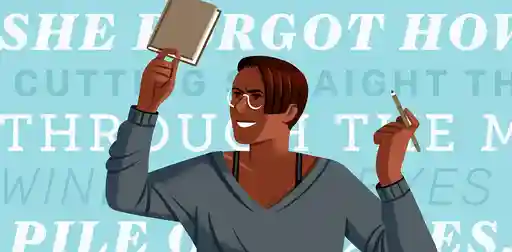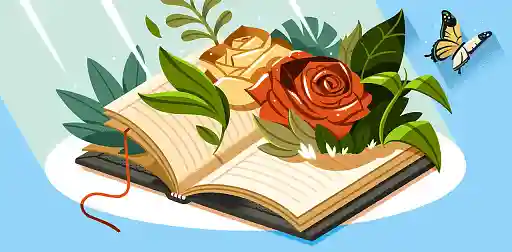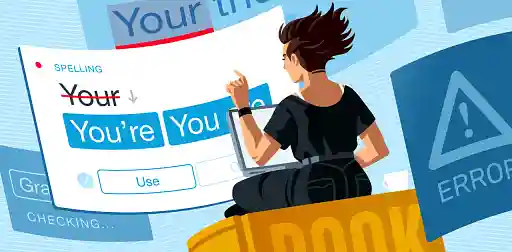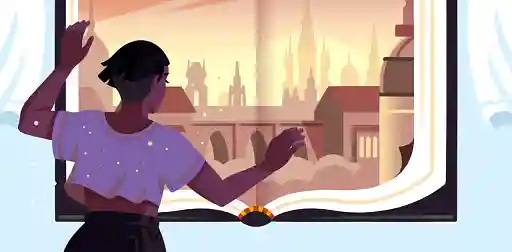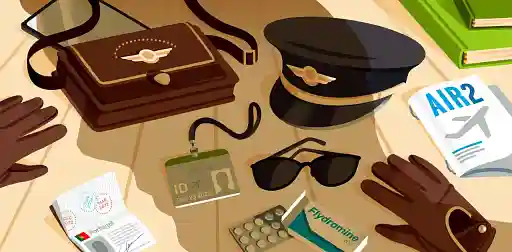Last updated on Oct 14, 2025
100+ Character Ideas (and How to Come Up With Your Own)
Isabella Peralta
A writer and editor, Isabella coordinates "Prompts," Reedsy's weekly short story competition. Originally from the Philippines, she is a graduate of the University of Cambridge.
View profile →Character creation can be one of the most fun but challenging parts of writing 一 from sketching out compelling protagonists to adorable sidekicks, sometimes all you need is a little inspiration! That’s why I’ve put together a list of more than 100 character ideas to help spark your creativity.
No matter whether you’ve just started your writing journey or have been crafting riveting stories for years, you’re bound to find some unique suggestions in this post! And for helpful tips on how to come up with your own character ideas, make sure to read until the end.
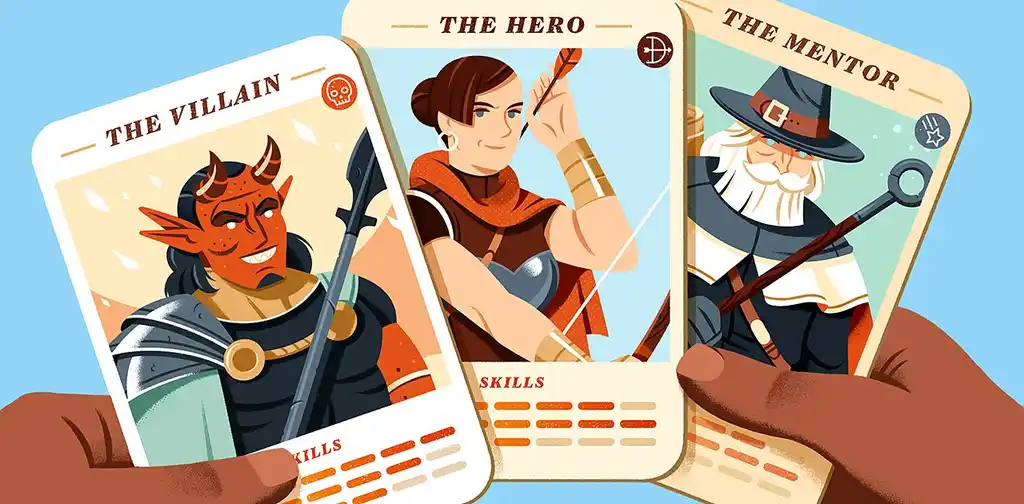
FREE RESOURCE
Reedsy’s Character Profile Template
A story is only as strong as its characters. Fill this out to develop yours.
110 unique character ideas
I've organized the potential ideas for your next character based on five genres: Fantasy, Mystery, Romance, Drama, and Sci-Fi. But don’t let this limit you — no matter what type of story you’re planning, you can find inspiration from any of these ideas and repurpose them for your own needs.
Q: What does it mean to create an “original” character in fiction?
Suggested answer
Original characters are those who are subverted stereotypes, who have things about them which are conflicting, who go against the grain in some way and who speak, think and react in ways that are not predictable.
Vanessa is available to hire on Reedsy ⏺
An original character feels and seems real and believable. They do not closely resemble a character that is well known in literature and have their own unique personality, desires, and set of circumstances.
Melody is available to hire on Reedsy ⏺
I think writing an original character just means that when a reader engages with that character, no other particular character comes to mind. Bit of a pithy answer, I know, but there you go. 😉
Brett is available to hire on Reedsy ⏺
Let’s begin with some magical character ideas…
Fantasy
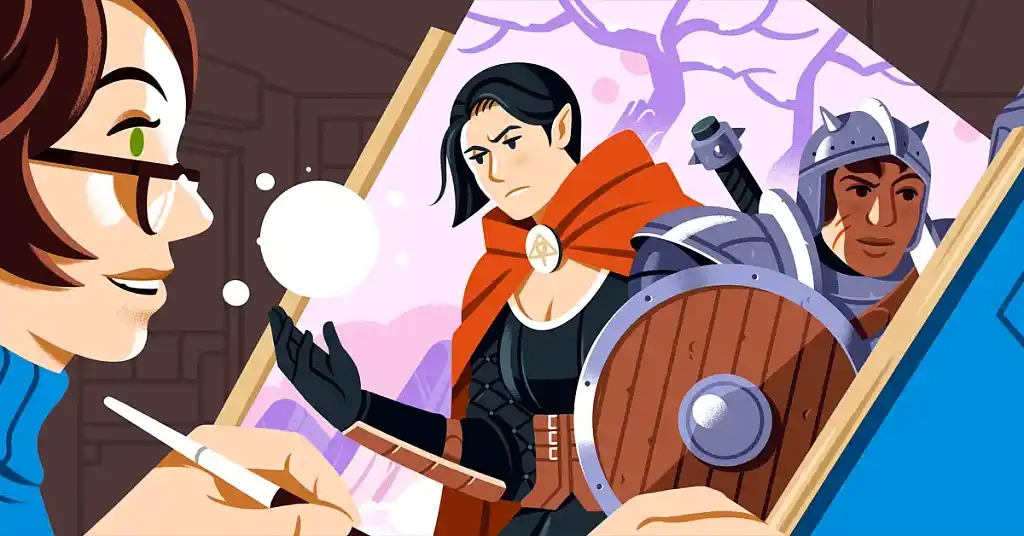
A realm of magic and mayhem provides fertile ground for exciting, memorable characters with some pretty out-of-this-world characteristics. Will you create a lovable hero à la Harry Potter, or perhaps someone as misunderstood as Severus Snape?
- A warrior who is past their prime.
- A witch-in-training who is stubborn to a fault.
- A knight-in-training who used to be idealistic.
- A sorcerer who is rather unpredictable.
- A necromancer-in-training who has self-esteem issues.
- A charlatan who is misunderstood.
- An assassin-in-training who is a worrywart.
- A ghost hunter who is afraid of the dark.
- A jester who is unexpectedly charismatic.
- An elven prince who is misunderstood.
- A warrior with a kind heart.
- A brigand who is innocent.
- A sellsword who has good intentions.
- A centaur who has never met a human before.
- A witch-in-training who has a reputation for being eccentric.
- A peasant who is obsessed with status.
- A sorcerer who is stubborn to a fault.
- An enchantress who is past their prime.
- A nomad who yearns for a home.
- A beekeeper who is allergic to bees.
- A vampire who is allergic to blood.
- A historian who can alter the past.
- A photographer whose camera only captures ghosts.
- A painter whose artwork comes alive.
- A herbalist who makes counterfeit potions.
Next, let’s dive into a world of enigmas and intrigue…
Mystery
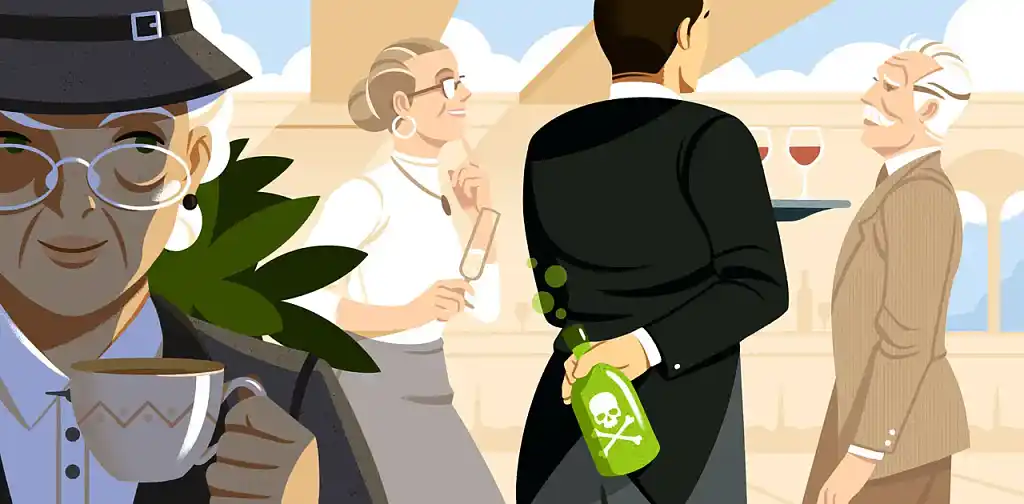
No matter whether your story takes place in an Agatha Christie-inspired courtroom or a quaint, sleepy village filled with secrets, you’re bound to find a character idea of interest below.
- An undercover agent who always has bad luck.
- A detective who is a compulsive liar.
- A federal investigator who is retired.
- A journalist who only reports lies.
- An intern who has an eye for opportunity.
- A prosecutor who is impatient.
- A constable who is easily swayed.
- A spy who is a klutz.
- A lawyer who is defending a guilty client.
- A college student who becomes an amateur sleuth.
- A housewife who is suspiciously agreeable.
- A bridesmaid who was at the scene of the crime.
- A high school student who always looks on edge.
- A double agent who hates lying.
- A retired detective who is asked to solve one last case.
If you struggle to keep a secret, perhaps a love story might be more up your alley…
Romance
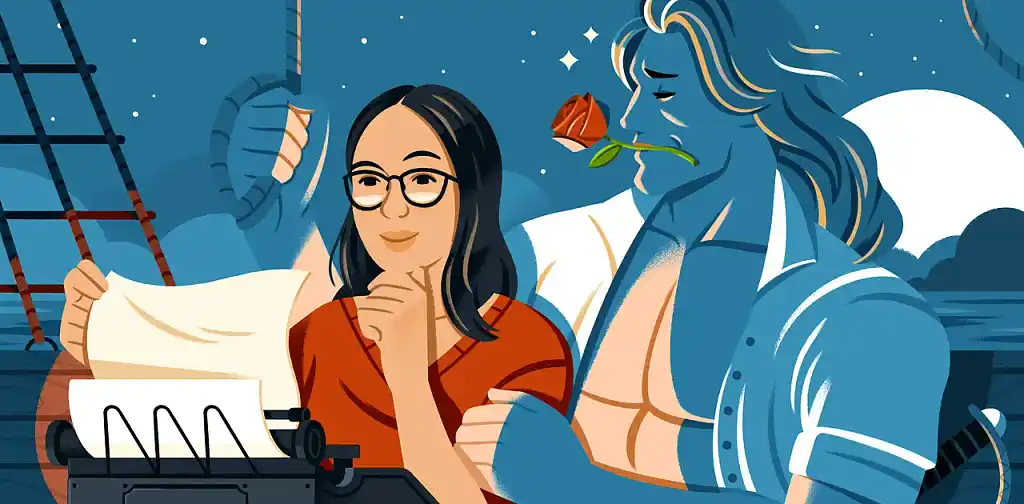
As a famous playwright once wrote, “The course of true love never did run smooth.” Use one of the character ideas below to create your next “will they/won't they” couple.
- A veterinarian who is allergic to animal fur.
- A musician who becomes tone-deaf.
- A barista who can be arrogant.
- A tattoo artist who can be absent-minded.
- A chef who cannot taste their own cooking.
- A fashion designer who is obsessed with work.
- A dentist who is unexpectedly charismatic.
- A stylist with a fear of hair dryers.
- A makeup artist who is an undercover celebrity reporter.
- A confectioner who hates anything sweet.
- A football star who is stubborn to a fault.
- A comedian who almost gives up on their comedy.
- A surfer recovering from a near-drowning accident.
- A prince who can be haughty.
- A violinist who is past their prime.
- A ballerina who has become jaded.
- A writer who is no longer inspired to write.
- A baker who only makes one kind of dessert.
- A mechanic who is overprotective yet gentle.
- A photographer who is self-centered.
- A florist who specializes in funeral arrangements.
- A singer at risk of losing their voice.
Q: How can writers use stereotypes and tropes to their benefit when creating a character?
Suggested answer
Well, stereotypes and tropes exist because they are the comfort food of readers, and should be the comfort food of writers too. Not to the extent that you write cliche stories by overusing the same old thing. But by the fact that their presence in certain story types is expected and even desired by fans of that story type, so to try and write without them can leave readers unsatisfied and the story feeling incomplete.
There are great books out there on this, John Truby in particular has a great one out. Knowing the stereotypes of a heroes journey, for example, gives you lots of options for side characters and supporting characters to help a hero on certain types of quests. The tropes are the expected encounters and obstacles that hero will encounter along the way.
If you start by mapping these out and identifying which are required (tropes most of all) and which work best for your story but are optional (stereotype characters) then you can take them and twist them in unique and interesting ways, even flip them around in timeline or approach in ways that make it clear they are there (and meet reader expectations and preferences) while still avoiding cliche expectation and creating interesting and unique characters, world, and stories that captivate readers.
Bryan thomas is available to hire on Reedsy ⏺
Trope = yes
Stereotype = no
A stereotype is an oversimplified view of a type of person, based on one aspect of their identity, like race or gender or hair color or where they're from. It's important to know stereotypes so you can avoid them in your writing, both so you won't be generic and so
Tropes, on the other hand, are like adding sugar to cake, rather than salt: You want to know what your audience came for, so you can give it to them!
Tropes are things with universal appeal that audiences come back for time and time again. (Not to be confused with a cliche, which is just something that has been overused until it's cringey. For instance, the villain in a YA novel being a mean blonde cheerleader is both a cliche and a stereotype. But a trope might be that the main character is an underdog who manages to win the heart of the most high-status boy in school!) Examples: enemies to lovers, amateur detective, chosen one, only one bed...
Intelligent use of proven tropes, combined in a new and unique way, are the fastest way to genre writing success!
Michelle is available to hire on Reedsy ⏺
A trope is something that is instantly familiar to readers: a character type, setting, plot point, or style of writing that is recognizable and tied to a specific genre.
For example, one familiar romance story structure is the “enemies to lovers” plot. This pattern is immediately recognizable to readers, and although it is used often, writers are still finding new and unique ways to spin it, and readers still love engaging with it.
Another popular trope is that of “The Chosen One.” Think about it: Both Luke Skywalker and King Arthur find a magical sword, receive the guidance of an older, wiser mentor, and go on a journey to storm a stronghold to save a princess. Even though the building blocks are the same, the stories are vastly and entirely different…and centuries apart!
There are hundreds of ways to apply this trope and come out with a unique and fresh story.
Tropes are the conventions, ideas, or motifs that make up these basic building blocks of all storytelling. In order to tell a fantastic story, tropes are necessary (and not to be confused with clichés, which are devices, expressions, or phrases that have been used so often and in so many places that readers have become tired of them, and desensitized to them). But why are they necessary?
Well, tropes are baked into every genre that we know and love. If you’re writing a western novel, odds are you might have a lone cowboy or a bumbling sheriff in there. If you’re writing a thriller or mystery novel, you might find yourself creating a gritty, lone-wolf detective, who acts first and asks questions later. Just because these tropes have been used before, doesn’t mean they’re tired!
If you’re writing in a specific genre, in order to use tropes effectively, you should be intimately familiar with the tropes of that genre. Knowing them inside and out means you’ll have your best shot at subverting them and spinning them in new ways that readers will enjoy (and avoid veering into cliché territory).
Think of books in the genre that you’ve read before. Was there one that you didn’t like? Ask yourself: What specifically made you dislike it? It might be that a trope wasn't used effectively, and if you can identify exactly what disappointed you about the way that trope was used, it can help you discover what you wished that writer might have done differently. And then: poof! Suddenly you have a thread of inspiration you can pull on to get some ideas for your own story.
Remember: tropes are patterns. And patterns can be twisted, bent, and manipulated. Just be careful not to break the pattern, or you risk readers finding it difficult to relate to a trope they cannot recognize and therefore relate to.
Writers just like you are still finding fresh ways to put a spin on tropes of all kinds, and using those building blocks to build entirely new and unexpected things for us to read!
Lesley-anne is available to hire on Reedsy ⏺
Before I continue, you should know that in Reedsy Studio, our free writing tool, you can use the Boards feature to jot down and sketch out your character ideas. It’s a handy way to detail their physical and behavioral traits, and you can create quick personality summaries that are easy to reference while writing your novel.
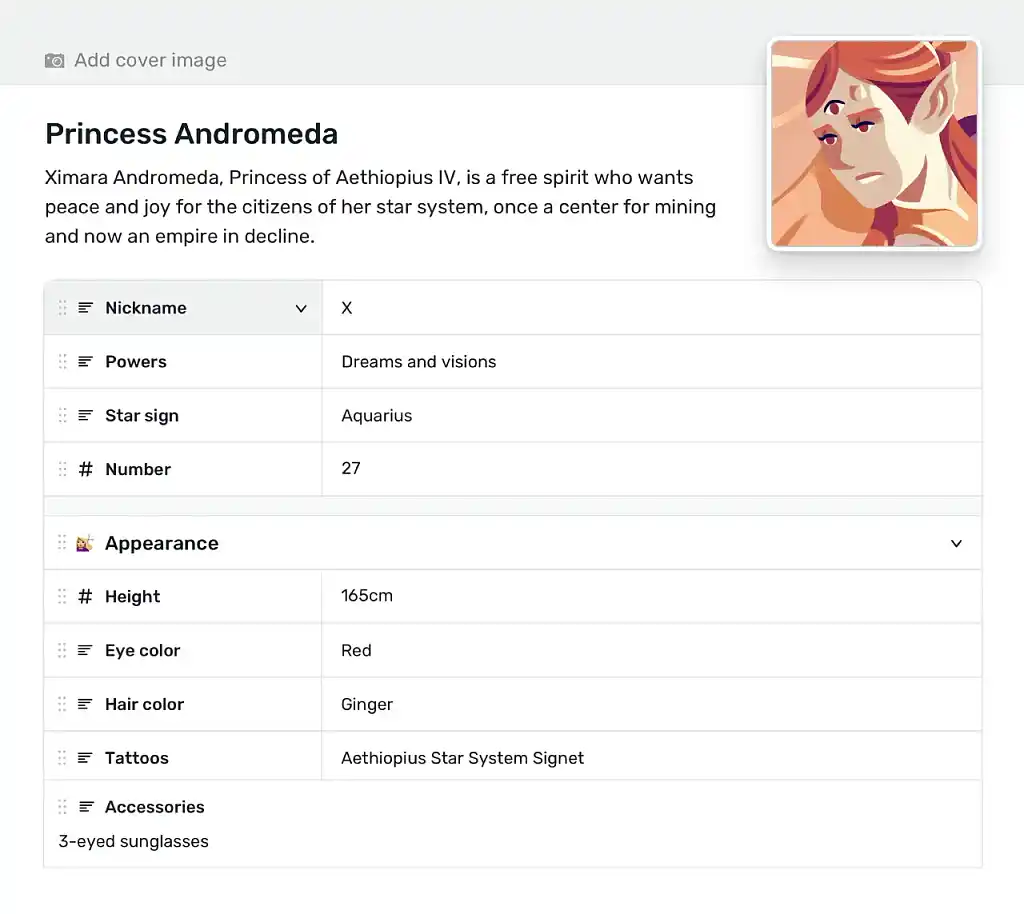
Next up, we’ve got some ideas for all the drama-lovers out there…
Drama
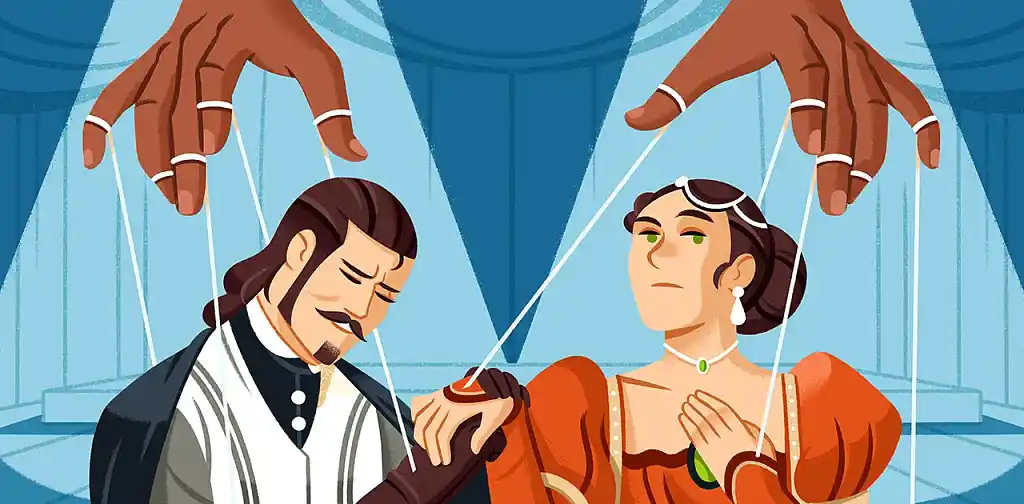
As a writer, you get to pull all the strings, even if that means leading your characters down dark and sometimes dangerous paths. Will you feature one of these troubled characters in your next melodrama?
- A socialite who tends to get tongue-tied.
- A detective who is rather manipulative.
- A plumber who is afraid of water.
- A butcher who is a strict vegetarian.
- A con artist who has good intentions.
- A veteran who has outrageous moral inflexibility.
- A director who has a reputation for being eccentric.
- A firefighter who is a pyromaniac.
- A taxi driver who is directionally challenged.
- A constable who is a chatterbox.
- A swindler who can be lazy.
- A librarian who falls asleep on the job.
- A teacher who despises children.
- A superhero who is overly trusting.
- A pilot who suffers from panic attacks.
- A lifeguard who forgets how to swim.
- A zookeeper who is scared of animals.
- A painter who is colorblind.
- A judge who is indecisive.
- A scholar who hates reading.
- An actor who inevitably cries onstage.
- A businessperson who is a compulsive liar.
- A housekeeper who is very private.
- A widower who is always at the pub.
- A thief who has good intentions.
- A charity worker who is self-centered.
- A parent who is overprotective.
- A tour guide who hates people.
- A billionaire on the brink of financial ruin.
Q: What is the most crucial piece of backstory an author should understand about their protagonist before beginning a novel?
Suggested answer
Whether in the backstory or in the current action of the book, once the reader starts reading, the author should know what their character wants. It can be a long-held desire or something new, based on changed circumstances.
There has to be a motivation and drive in the character. Or if there isn't any, and that is sort of the point of the book, you want to let the reader know why and what in their past has made them the way they are. This sort of "motivation" is a good thing to search for in each character. What has shaped them to do what they do and behave the way they behave in the story? They must stay "in character" throughout the book unless some sort of inner or outer impetus has forced them or inspired them to change their ways.
So this most crucial piece of backstory might be why your protagonist behaves the way they do, what motivates them and why, and what they want.
Melody is available to hire on Reedsy ⏺
If you’d rather go to infinity and beyond (or at least a few lightyears away from Earth), check out our final genre…
Sci-Fi
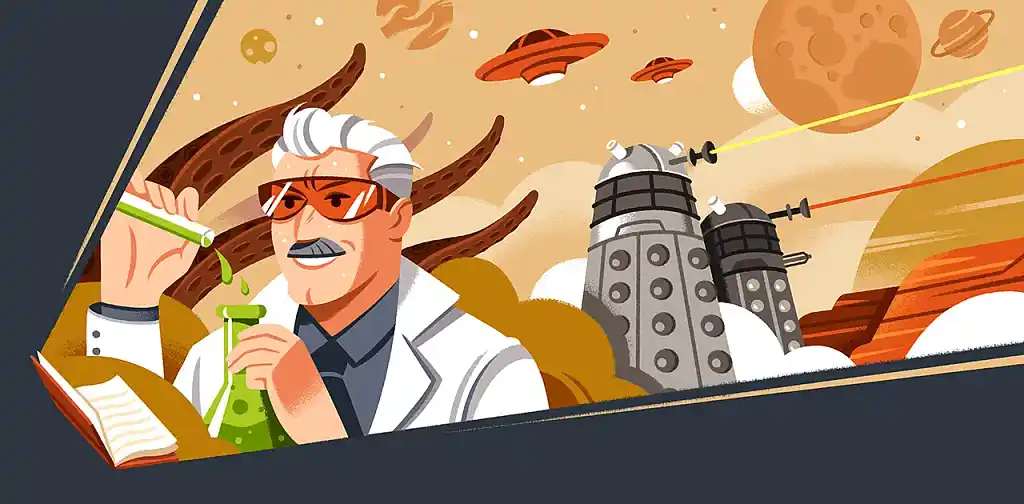
While writing science fiction, you’ve got an exciting, brave new world to explore. What better way to develop your story than by populating it with fascinating characters — both human and extraterrestrial?
- A scientist who is afraid of germs.
- An android who is well-meaning.
- A cyborg who is amoral.
- An astronaut who is very forgetful.
- A robot who masquerades as a human.
- A time traveler who can no longer go back in time.
- A science teacher who is hiding a secret about the universe.
- A bounty hunter who struggles to do the right thing.
- An outlaw who is trying to change their ways.
- An extraterrestrial being who becomes popular among humans.
- An astronomer who has become skeptical.
- A handmaiden who has become jaded.
- A professor who can read minds.
- A chemist who has discovered something groundbreaking.
- A biomedical engineer with a dubious moral compass.
- A clone who is depressed.
- A billionaire who invests in commercial space travel.
- A smuggler who often jumps to conclusions.
- A mutant who wants to become human.
And there you go — over 100 character ideas to consider while writing! But if you feel inspired enough to try coming up with your own character ideas, read on...
How to come up with character ideas yourself
With new books being published left and right, you might find the idea of creating a memorable fan favorite a bit daunting. If you’ve read through our entire list, you probably noticed that most of the ideas I shared focus on playing with contrasts. “A scholar who loves reading” is a realistic, relatable character, but what could be more interesting than that?
Q: What are the most overused character clichés writers should avoid?
Suggested answer
Green eyes. And eyes that glow, that swirl, that change color, have flecks that dance, and can be seen from absurd distances. Fantasy books are full of this stuff. It gets tiresome. And while we're at it, does every feisty female have to have red hair?
Doreen is available to hire on Reedsy ⏺
If we change this idea into something unexpected, we end up with something a bit more intriguing: “A scholar who hates reading.” Who is this scholar? Why would they pursue an academic career if they hate reading? How do they intake knowledge? Just by changing “loves” to “hates,” we’ve opened up a door to a ton of different questions.
Similarly, “A housewife who is suspiciously agreeable” begs the question: What is she up to? Will her insincerity be exposed, and at what cost?
So, in order to come up with potential new ideas, try subverting your readers’ expectations and make sure there’s always a hint of inner or outer conflict.

FREE COURSE
How to Develop Characters
In 10 days, learn to develop complex characters readers will love.
Let’s now look into how into a few more ways to come up with your own character ideas:
Use our plot generator
If you need a quick way to decide on a protagonist, secondary character, plot, and twist, look no further than Reedsy’s Plot Generator, with over 1 million plot combinations to inspire you!
People-watch
A classic tip, but for good reason! What better way to write realistic, relatable characters than drawing certain mannerisms and sayings from people you’ve observed in everyday life? Don’t forget that you can combine the quirks of various people to create even more multifaceted characters.
Get inspired by popular characters
When in doubt, turn to your favorite books! Even if you’re writing in a different genre, you can still draw inspiration from many well-written passages and character descriptions.
Q: What are effective adjectives for describing characters, and when should each be used?
Suggested answer
My favourite from my writing has been "etiolated." It's a word that describes a seedling starved of sunlight - thin and pale and reaching up. It contains a lot of layers of imagery which were useful for describing a character at their lowest point.
Mairi is available to hire on Reedsy ⏺
Curious, rebellious. A character that doesn't quite "fit the mold" will usually be interesting to readers.
Melody is available to hire on Reedsy ⏺
Characters are best described through body language and dialogue. Avoid overusing adjectives and let your readers do some of the interpreting. There is no need to spell everything out for them. The best way to convey a character's personality is through action, dialogue and body language.
Eva maria is available to hire on Reedsy ⏺
For example, if your protagonist is a grouchy physician but your favorite literary character is a loquacious barkeeper, what intrigues you the most about the latter? Is there an unspeakable pain or secret hiding behind their talkative nature? Do they use jokes and crude language to mask their inner turmoil? Perhaps you could find a way to add similar depth to your physician character (without copy-pasting their whole story).
Here’s a list of beloved characters in literature with distinct qualities who you can try modeling your own characters after:
-
Elizabeth Bennet from Pride and Prejudice: A clever, kind-hearted, and independent young woman who is sometimes quick to judge.
-
Dobby from the Harry Potter series: A reliable, selfless house-elf who’s willing to risk his life for the people he cares about.
-
Fermín Romero de Torres from Shadow of the Wind: A goofy, loyal sidekick and mentor who can be a bit too talkative for his own good.
-
Marie-Laure LeBlanc from All the Light We Cannot See: A brave, resilient girl who doesn’t let her lack of sight stop her from surviving a war.
-
Starr Carter from The Hate U Give: A witty yet insecure teenager who finds the courage and strength to become a vocal activist.
-
Pip from Great Expectations: A kind but immature boy who transforms into a self-assured, ambitious young man.
-
Lisbeth Salander from the Millennium series: An intelligent, badass computer hacker with a dark past who struggles with self-awareness and processing deep emotions.
-
Connell Waldron from Normal People: A shy and caring teenager who’s overly self-conscious.
-
Ged from A Wizard of Earthsea: A reckless, proud boy who’s destined to become a great magician.
I hope you’ve found some inspiration from this list for your current or next work-in-progress. But if you still need more help with character creation, or if you’ve chosen an idea and want to make your character more three-dimensional and complex, don’t forget to check out our post on character development.

